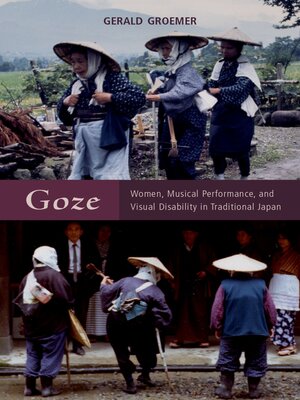Goze
ebook ∣ Women, Musical Performance, and Visual Disability in Traditional Japan
By Gerald Groemer

Sign up to save your library
With an OverDrive account, you can save your favorite libraries for at-a-glance information about availability. Find out more about OverDrive accounts.
Find this title in Libby, the library reading app by OverDrive.



Search for a digital library with this title
Title found at these libraries:
| Loading... |
In a tradition extending from the medieval era to the early twentieth century, visually disabled Japanese women known as goze toured the countryside as professional singers. An integral part of rural musical culture, the goze sang unique narratives of their own making and a significant repertory of popular ballads and short songs. Goze activities peaked in the nineteenth century, and some women continued to tour well into the middle of the twentieth. The last active goze lived until 2005. In Goze: Women, Musical Performance, and Visual Disability in Traditional Japan, Gerald Groemer examines the way of life, institutions, and songs of these itinerant performers. Groemer shows that the solidarity and success goze achieved with the rural public through narrative and music was based on the convergence of the goze's desire for a degree of social and economic autonomy with the audience's wish to mitigate the cultural deprivation it so often experienced. Goze recognized audiences as a stimulus for developing repertories and careers; the public in turn recognized goze as masterful artisans who acted as powerful agents of widespread cultural development. As the first full-length scholarly work on goze in English, this book is an invaluable resource to scholars and students of Japanese culture, Japanese music, ethnomusicology, and disability studies worldwide.






